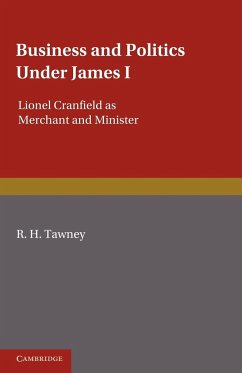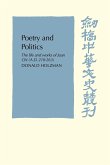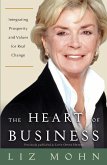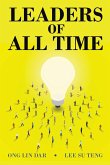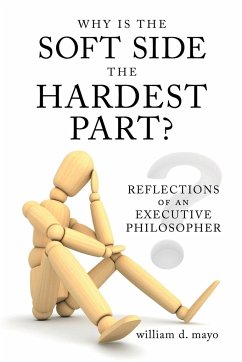- Broschiertes Buch
- Merkliste
- Auf die Merkliste
- Bewerten Bewerten
- Teilen
- Produkt teilen
- Produkterinnerung
- Produkterinnerung
Throws light on the background, conditions, and practices of England's economic life during the reign of James I.
Andere Kunden interessierten sich auch für
![The Dressmaker of Khair Khana The Dressmaker of Khair Khana]() Gayle Tzemach LemmonThe Dressmaker of Khair Khana19,99 €
Gayle Tzemach LemmonThe Dressmaker of Khair Khana19,99 €![Theatre and Politics in Nineteenth-Century Spain Theatre and Politics in Nineteenth-Century Spain]() David Thatcher GiesTheatre and Politics in Nineteenth-Century Spain50,99 €
David Thatcher GiesTheatre and Politics in Nineteenth-Century Spain50,99 €![Poetry and Politics Poetry and Politics]() Donald HolzmanPoetry and Politics54,99 €
Donald HolzmanPoetry and Politics54,99 €![Finding Chika Finding Chika]() Mitch AlbomFinding Chika24,99 €
Mitch AlbomFinding Chika24,99 €![The Heart of Business The Heart of Business]() Liz MohnThe Heart of Business11,99 €
Liz MohnThe Heart of Business11,99 €![LEADERS OF ALL TIME LEADERS OF ALL TIME]() Ong Lin DarLEADERS OF ALL TIME17,99 €
Ong Lin DarLEADERS OF ALL TIME17,99 €![Why Is the Soft Side the Hardest Part? Why Is the Soft Side the Hardest Part?]() William D. MayoWhy Is the Soft Side the Hardest Part?20,99 €
William D. MayoWhy Is the Soft Side the Hardest Part?20,99 €-
-
-
Throws light on the background, conditions, and practices of England's economic life during the reign of James I.
Hinweis: Dieser Artikel kann nur an eine deutsche Lieferadresse ausgeliefert werden.
Hinweis: Dieser Artikel kann nur an eine deutsche Lieferadresse ausgeliefert werden.
Produktdetails
- Produktdetails
- Verlag: Cambridge University Press
- Seitenzahl: 340
- Erscheinungstermin: 7. Dezember 2011
- Englisch
- Abmessung: 216mm x 140mm x 20mm
- Gewicht: 480g
- ISBN-13: 9781107698437
- ISBN-10: 110769843X
- Artikelnr.: 34447337
- Herstellerkennzeichnung
- Libri GmbH
- Europaallee 1
- 36244 Bad Hersfeld
- gpsr@libri.de
- Verlag: Cambridge University Press
- Seitenzahl: 340
- Erscheinungstermin: 7. Dezember 2011
- Englisch
- Abmessung: 216mm x 140mm x 20mm
- Gewicht: 480g
- ISBN-13: 9781107698437
- ISBN-10: 110769843X
- Artikelnr.: 34447337
- Herstellerkennzeichnung
- Libri GmbH
- Europaallee 1
- 36244 Bad Hersfeld
- gpsr@libri.de
Richard Henry "Harry" Tawney[a] (1880-1962), generally known as R. H. Tawney, was an English economic historian,[1][2] social critic,[3][4] ethical socialist,[5] Christian socialist,[6][7] and important proponent of adult education.[8][9] The Oxford Companion to British History (1997) explained that Tawney made a "significant impact" in all four of these "interrelated roles".[10] A. L. Rowse goes further by insisting that "Tawney exercised the widest influence of any historian of his time, politically, socially and, above all, educationally Born on 30 November 1880 in Calcutta, British India (present-day Kolkata, India), Tawney was the son of the Sanskrit scholar Charles Henry Tawney. He was educated at Rugby School, arriving on the same day as William Temple, a future Archbishop of Canterbury; they remained friends for life.[12] He studied modern history at Balliol College, Oxford. The college's "strong ethic of social service" combined with Tawney's own "deep and enduring Anglicanism" helped shape his sense of social responsibility.[13] After graduating from Oxford in 1903, he and his friend William Beveridge lived at Toynbee Hall, then the home of the recently formed Workers' Educational Association (WEA). The experience was to have a profound effect upon him. He realised that charity was insufficient and major structural change was required to bring about social justice for the poor.[14] Whilst Tawney remained a regular churchgoer, his Christian faith remained a personal affair, and he rarely spoke publicly about the basis of his beliefs.[15] In keeping with his social radicalism, Tawney came to regard the Church of England as a "class institution, making respectful salaams to property and gentility, and with too little faith in its own creed to call a spade a spade in the vulgar manner of the New Testament".[16] For three years from January 1908, Tawney taught the first Workers' Educational Association tutorial classes at Longton, Stoke-on-Trent, and Rochdale, Lancashire.[17] For a time, until he moved to Manchester after marrying Jeanette (William Beveridge's sister), Tawney was working as part-time economics lecturer at Glasgow University. To fulfil his teaching commitments to the WEA, he travelled first to Longton for the evening class every Friday, before travelling north to Rochdale for the Saturday afternoon class. Tawney clearly saw these classes as a two-way learning process. "The friendly smitings of weavers, potters, miners and engineers, have taught me much about the problem of political and economic sciences which cannot easily be learned from books"
Preface
Notes on references to Cranfield MSS.
Part I. Cranfield as Merchant: 1. Introduction
2. The European background
3. Cranfield's export business
4. Cranfield in the city
Part II. Cranfield as Minister: 5. The opening years
6. The economy campaign
7. Cranfield in command
Part III. The Fall of Middlesex: 8. The impeachment
9. Conclusion
Appendix
Bibliography
Index of subjects
Index of persons
Index of places.
Notes on references to Cranfield MSS.
Part I. Cranfield as Merchant: 1. Introduction
2. The European background
3. Cranfield's export business
4. Cranfield in the city
Part II. Cranfield as Minister: 5. The opening years
6. The economy campaign
7. Cranfield in command
Part III. The Fall of Middlesex: 8. The impeachment
9. Conclusion
Appendix
Bibliography
Index of subjects
Index of persons
Index of places.
Preface
Notes on references to Cranfield MSS.
Part I. Cranfield as Merchant: 1. Introduction
2. The European background
3. Cranfield's export business
4. Cranfield in the city
Part II. Cranfield as Minister: 5. The opening years
6. The economy campaign
7. Cranfield in command
Part III. The Fall of Middlesex: 8. The impeachment
9. Conclusion
Appendix
Bibliography
Index of subjects
Index of persons
Index of places.
Notes on references to Cranfield MSS.
Part I. Cranfield as Merchant: 1. Introduction
2. The European background
3. Cranfield's export business
4. Cranfield in the city
Part II. Cranfield as Minister: 5. The opening years
6. The economy campaign
7. Cranfield in command
Part III. The Fall of Middlesex: 8. The impeachment
9. Conclusion
Appendix
Bibliography
Index of subjects
Index of persons
Index of places.

